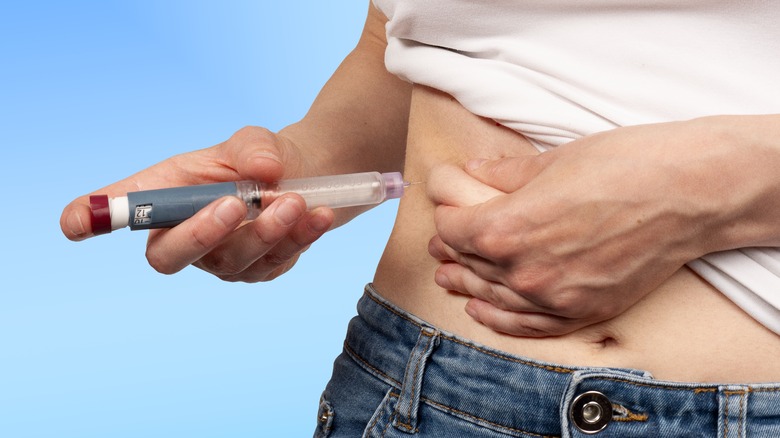Could Diabetes Increase Your Risk Of Long COVID?
New research presented at the 2022 meeting of the American Diabetes Association in New Orleans on June 5 suggests that having diabetes increases the chances of developing a severe COVID-19 infection. In addition, those with diabetes may be as much as four times as likely to develop long COVID.
The U.S. Centers for Disease Control and Prevention (CDC) explains that diabetes is a chronic illness in which your body either can't make enough of the hormone insulin or can't use it properly. This allows too much sugar to remain in the blood, which can eventually lead to issues like heart disease, kidney disease, or blindness if it is untreated or not well controlled.
The CDC further notes that long COVID — or post-COVID conditions — include a wide range of health problems that people with previous COVID-19 infections can have, even months or years after they recover. Long COVID has been reported to include symptoms such as fatigue, heart problems, breathing problems, neurological problems, digestive problems, joint and muscle pain, rash, or changes in the menstrual cycle.
Diabetes appears to be strong risk factor for long COVID
In order to conduct their analysis, lead author Jessica L. Harding and her team took a look at studies that examined long COVID symptoms. The studies included both people with diabetes and without. They found that in 43% of the seven studies they examined, diabetes was a strong risk factor for long COVID.
In an interview with U.S. News and World Report, Harding told the news outlet that it is essential to regularly monitor glucose levels in diabetics who become infected with COVID-19. Furthermore, it's important to adhere to glucose-lowering medications when appropriate. However, more data is needed to draw firmer conclusions, she explained.
The Endocrinology Network notes that Harding did discuss certain limitations in her study at the meeting, such as the small number of studies available, follow-up times, and risk adjustment. However, she suggests monitoring these patients in the meantime until we learn more.


